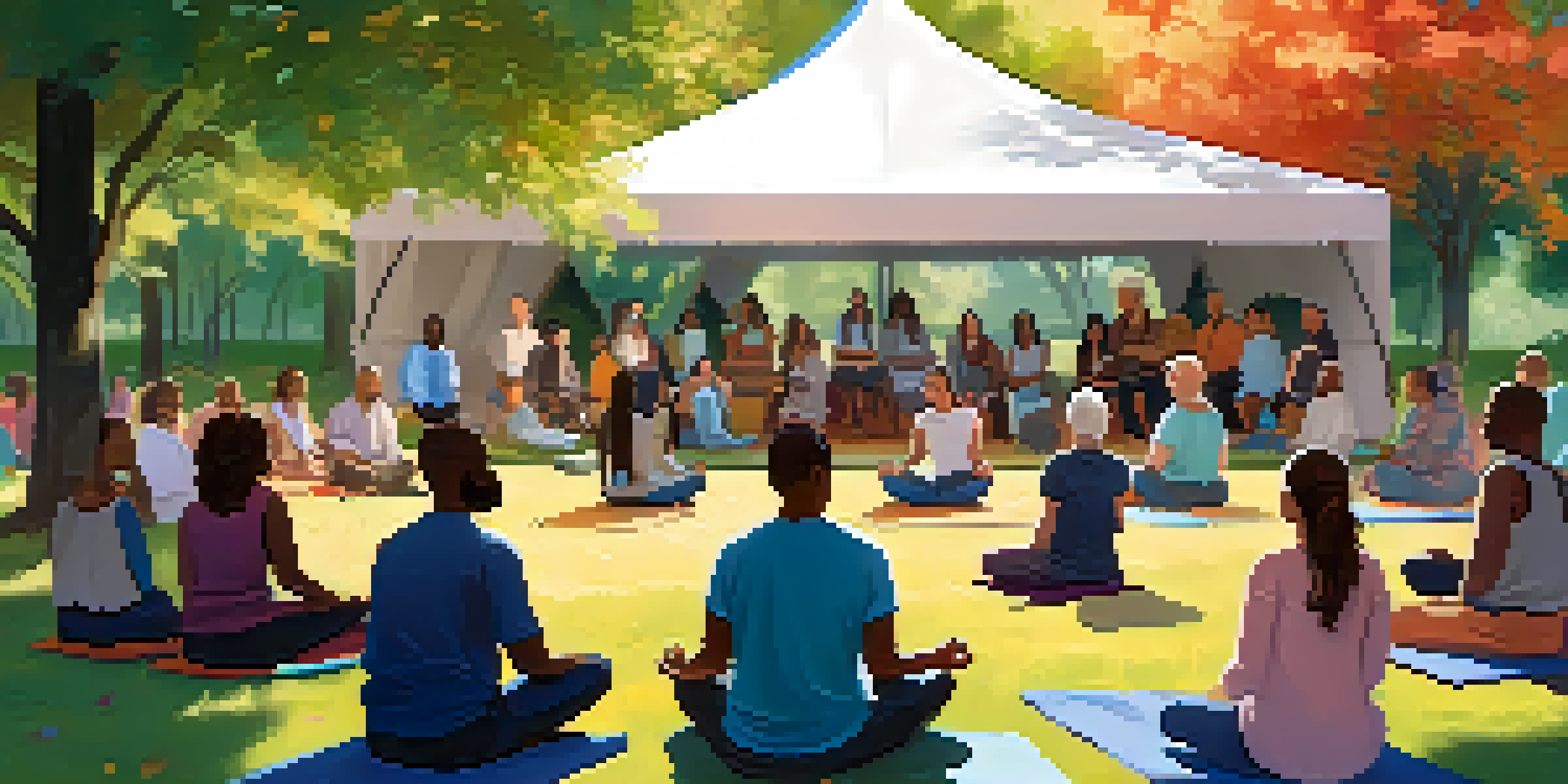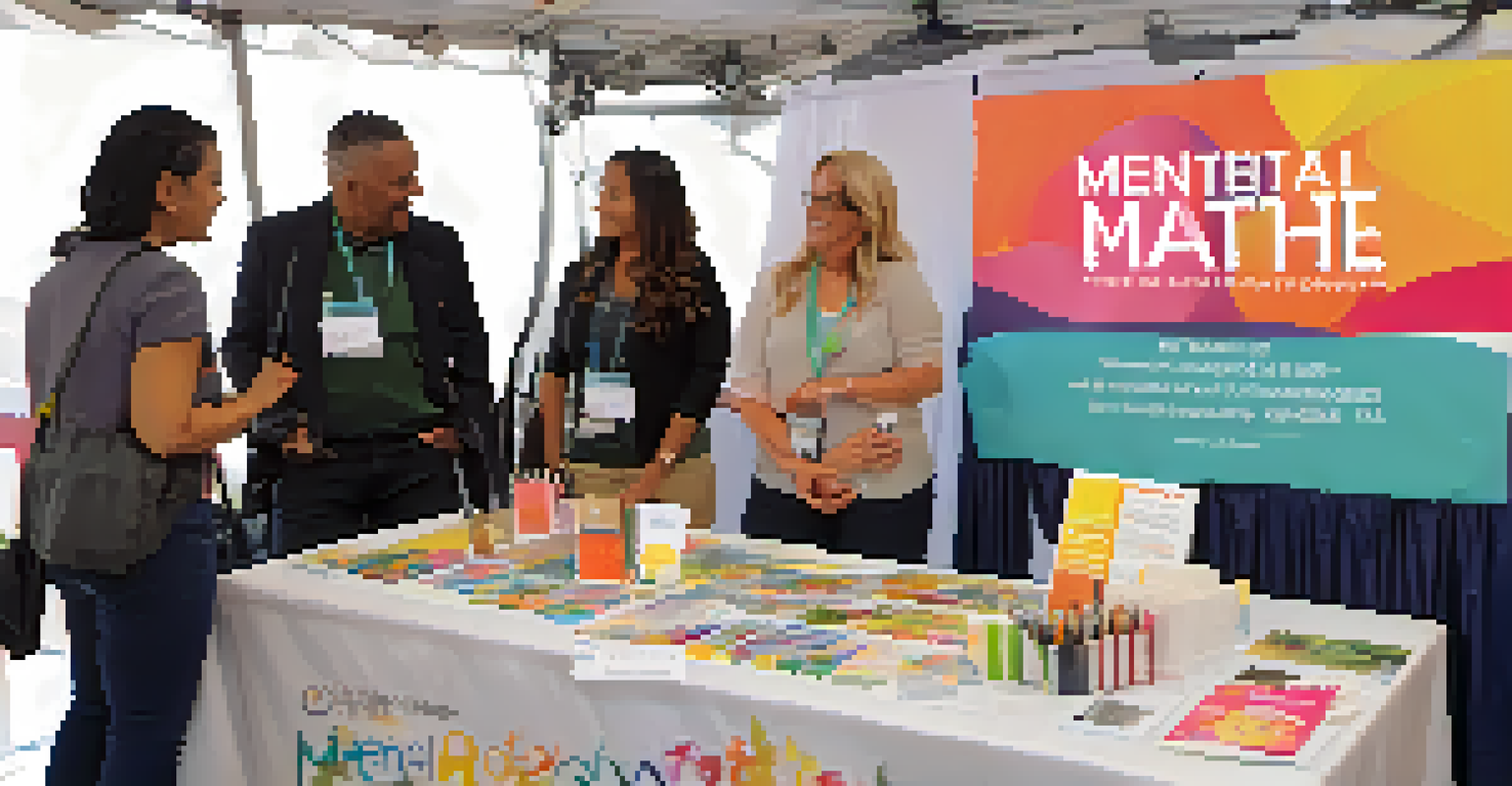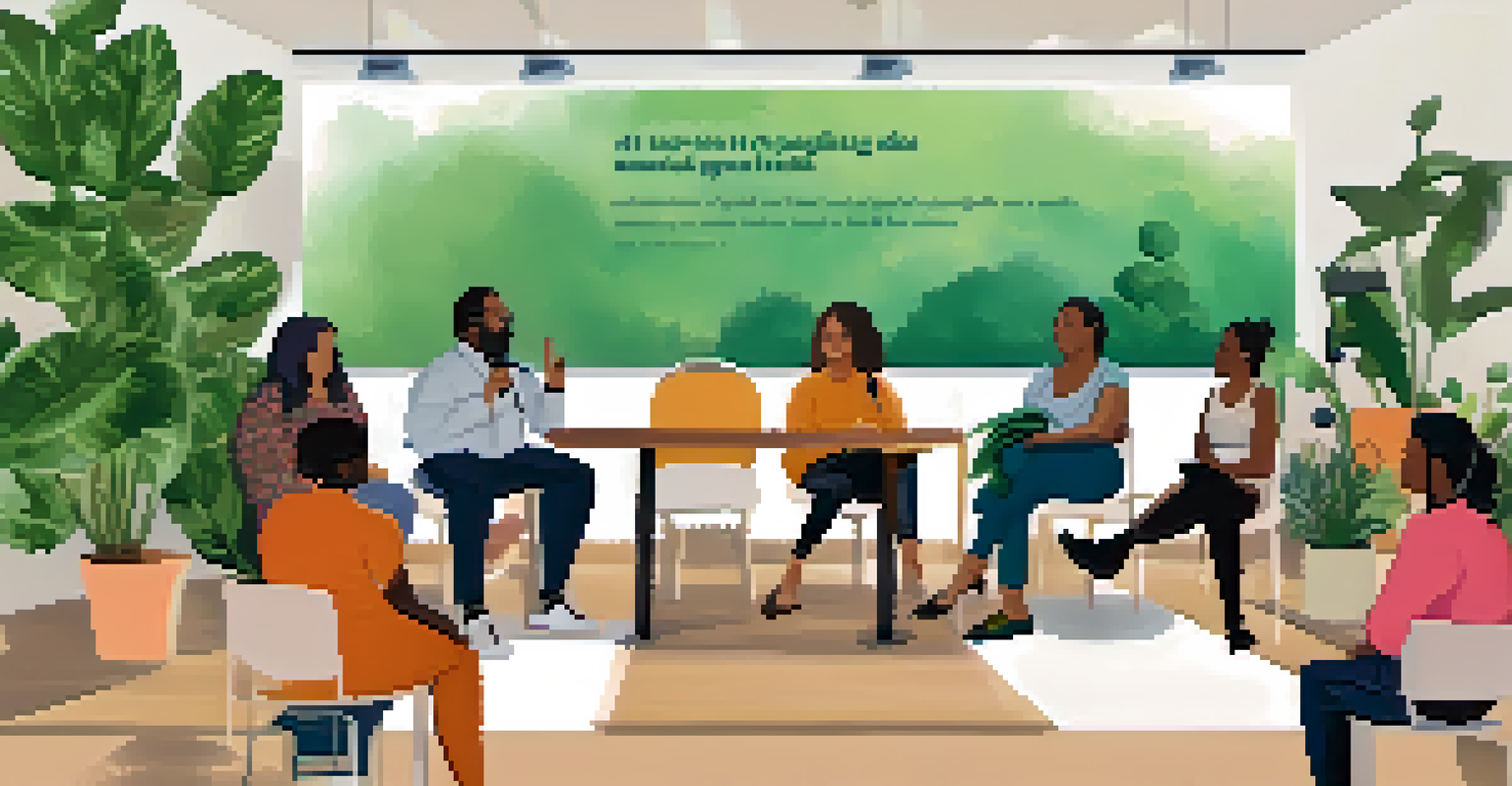Supporting Mental Health Awareness in Community Events

Understanding Mental Health Awareness and Its Importance
Mental health awareness is crucial in fostering understanding and reducing stigma around mental health issues. It encourages individuals to seek help and support when needed, which can lead to healthier communities. By raising awareness, we create a safe space where people feel comfortable discussing their struggles without fear of judgment.
The greatest weapon against stress is our ability to choose one thought over another.
Community events serve as a powerful platform for promoting mental health awareness. They bring people together, allowing for shared experiences and collective learning. This communal approach can help dispel myths and misconceptions surrounding mental health, making it easier for individuals to relate to one another.
Ultimately, promoting mental health awareness is not just about providing information; it's about cultivating empathy and understanding. By engaging with community members through events, we can foster a culture that prioritizes mental well-being, making it a normal part of everyday conversations.
Creating Engaging Activities Focused on Mental Health
Incorporating engaging activities into community events can significantly enhance mental health awareness. Workshops, interactive games, and art therapy sessions can provide hands-on experiences that encourage participants to express themselves. These activities not only educate attendees but also create an inviting atmosphere where they can connect with others.

Consider hosting mindfulness sessions or yoga classes as part of your event. These practices promote mental well-being and provide attendees with tools they can use in their daily lives. When people leave feeling relaxed and empowered, they’re more likely to continue the conversation about mental health long after the event ends.
Importance of Mental Health Awareness
Raising mental health awareness helps create a supportive environment where individuals feel comfortable discussing their struggles.
Additionally, activities that encourage storytelling can be particularly impactful. When individuals share their personal experiences with mental health, it fosters understanding and compassion, helping to break down barriers. This shared vulnerability can create lasting bonds within the community.
Partnering with Local Mental Health Organizations
Collaborating with local mental health organizations can amplify the impact of community events. These organizations often have valuable resources, expertise, and connections that can enhance your event's effectiveness. By partnering with them, you can offer attendees access to professional support and information that may not be available otherwise.
Mental health is not a destination, but a process. It's about how you drive, not where you're going.
Incorporating expert speakers or mental health professionals into your events can provide credibility and depth to your discussions. They can lead workshops, answer questions, and offer insights that resonate with the audience. Their presence underscores the importance of mental health and encourages attendees to seek help when necessary.
Moreover, local organizations can provide promotional materials, such as brochures or flyers, that attendees can take home. This not only extends the reach of your mental health message but also empowers individuals to explore further resources on their own time.
Utilizing Social Media to Promote Mental Health Events
Social media is a powerful tool for raising awareness and promoting events focused on mental health. Platforms like Facebook, Instagram, and Twitter allow you to reach a wider audience and engage with community members in real-time. By sharing event details, inspirational stories, and mental health tips, you can foster a supportive online community.
Creating event-specific hashtags can encourage participants to share their experiences and connect with one another. This not only builds excitement around the event but also creates a sense of belonging among attendees. As people share their stories, they contribute to a larger narrative that highlights the importance of mental health.
Engaging Activities Foster Connection
Incorporating interactive activities into community events encourages participants to express themselves and build meaningful connections.
Additionally, social media can serve as a platform for ongoing discussions about mental health. After the event, consider continuing the conversation online, encouraging participants to share their thoughts and insights. This helps maintain momentum and reinforces the idea that mental health is an ongoing journey, not just a one-time discussion.
Incorporating Mental Health Resources Into Events
Providing accessible mental health resources at community events is essential for fostering ongoing support. Consider setting up booths or information tables where attendees can learn about local mental health services, hotlines, and support groups. This makes it easier for individuals to seek help when they need it most.
Additionally, distributing resource packets or brochures can empower attendees to take action beyond the event. Including practical information, such as self-care tips and coping strategies, can be beneficial for individuals who may not yet be ready to seek professional help. Offering these resources encourages a proactive approach to mental well-being.
It’s also helpful to invite mental health professionals to answer questions and provide guidance. Their expertise can help demystify the process of seeking help, making it less intimidating for those who may be hesitant. By creating an environment where resources are readily available, we can support individuals on their mental health journey.
Encouraging Open Dialogue About Mental Health
Creating a safe space for open dialogue about mental health is vital for breaking down stigma. Encourage attendees to share their thoughts, experiences, and questions through panel discussions or Q&A sessions. This fosters a culture of openness, where individuals feel comfortable expressing themselves without fear of judgment.
Consider incorporating anonymous question boxes where participants can submit their questions or concerns. This allows for candid discussions, as individuals may feel more comfortable sharing their thoughts anonymously. Addressing these questions can provide valuable insights and help attendees feel heard and understood.
Open Dialogue Breaks Down Stigma
Facilitating open discussions about mental health promotes understanding and helps dismantle the stigma surrounding these issues.
Moreover, highlighting stories of resilience can inspire others to share their journeys. When individuals see that they are not alone in their struggles, it fosters a sense of community and support. By prioritizing open dialogue, we create an environment that encourages growth, healing, and understanding.
Evaluating the Impact of Mental Health Initiatives
After hosting a community event focused on mental health awareness, it’s important to evaluate its impact. Gathering feedback from attendees can provide valuable insights into what worked well and what could be improved. Surveys or informal discussions can help you understand the effectiveness of your initiatives.
Consider measuring the reach of your event, such as the number of participants and the level of engagement during activities. This data can help you identify trends and areas for growth in future events. Additionally, assessing how attendees felt before and after the event can highlight changes in perceptions related to mental health.

Ultimately, evaluating the impact of your initiatives allows you to refine your approach and ensure that your efforts are making a difference. Continuous improvement is key to fostering a supportive community that prioritizes mental health awareness and advocacy.